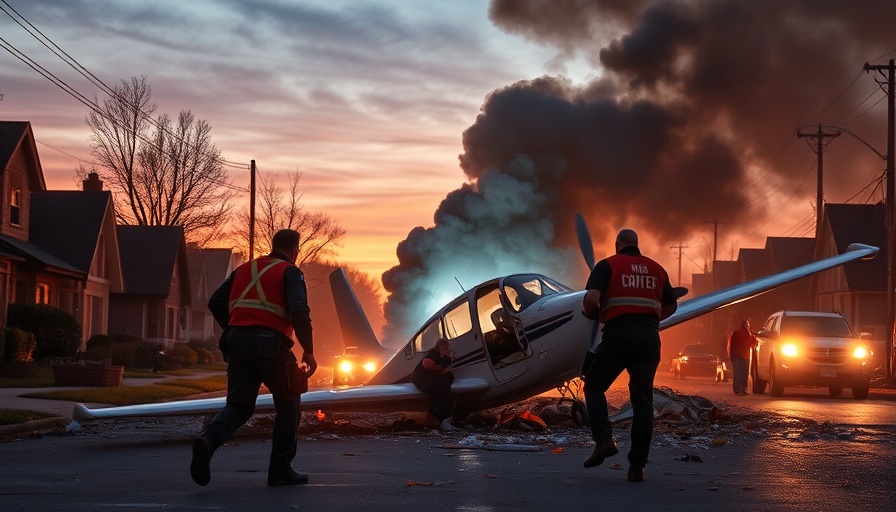
Off-Duty Officers Make a Life-Saving Difference in Pembroke Pines Plane Crash
In a dramatic turn of events on July 13, 2025, off-duty Boca Raton police officers, alongside local residents, displayed extraordinary courage and quick thinking when a small plane crash-landed in a suburban neighborhood in Pembroke Pines, Florida. The incident serves as a testament to the training and preparedness of law enforcement personnel in the face of unexpected emergencies.
Gripping Moments of Survival and Rescue
The 1976 Cessna T337G, piloted by Carlos Balza Cardenas, plunged to the ground just short of North Perry Airport, sparking a fire that threatened the lives of him, his wife, and their two teenage daughters. Eyewitnesses described a chaotic scene as debris scattered across the yard and the aircraft filled with smoke. Within moments of the crash, police detectives Scott Hanley, Eddy Crispin, Tarrance Sheffield, and Emanuel Llanguno rushed to the site, employing a sledgehammer to smash the cockpit windows and free the entrapped family.
As bystanders struggled with anxiety, the officers worked seamlessly with neighbors to ensure that everyone was evacuated safely. Their response illustrated how the background of training in police work can translate into lifesaving action, underscoring critical lessons regarding officer safety and community relations.
The Role of Improved Training in Officer Preparedness
This incident is a stark reminder of the constant need for rigorous training programs within police departments. Training isn't limited to traditional policing scenarios; it must encompass comprehensive emergency response strategies that ensure officers can act decisively in crises beyond the usual scope of law enforcement. Adequate situational training and simulations are vital in prepping officers to handle not only potential crime scenes but also public safety incidents like this one.
Community Interaction and Engagement
This incident highlighted the power of community ties in emergency responses. The local woman's instinct to comfort a scared child during the rescue was emblematic of a collective community spirit. It’s a reminder that successful policing often hinges on robust police-community relations, fostering an environment where residents feel valued and acknowledged. For government policymakers, fostering these connections can lead to not only safer neighborhoods but also enhanced trust in law enforcement.
Technological Tools to Aid in Public Safety
The integration of modern technology into police work, such as body-worn cameras, can play an essential role in documenting such heroic efforts and improving police transparency. These innovations can enhance training and community trust by providing clear insights into how officers operate in the field, particularly during critical incidents. As more departments adopt these tools, they reinforce their commitment to accountability, thereby strengthening public perception.
Looking Ahead: Future Predictions for Policing
As we reflect on the Pembroke Pines incident, it’s clear that the role of technology, ongoing training, and community engagement will shape the future of effective public safety strategies. Departments that invest in training officers for a wide array of situations while fostering strong community relationships will likely see improved outcomes. Together, law enforcement and communities can collaborate to create safer environments that not only respond effectively to emergencies but also prevent potential crises before they happen.
This incident serves as a passionate call for police departments nationwide to integrate such training into their programs—an endeavor that will arm them not just for responses, but for building enduring community relations.
Conclusion: Building Stronger Communities Through Preparedness
The successful rescue of the Balza Cardenas family emphasizes the importance of readiness, teamwork, and community cooperation in emergency situations. It challenges police departments and the public alike to consider how technology and training can uplift our collective safety. Let’s advocate for robust training programs and community initiatives that bolster public safety and law enforcement effectiveness.
 Add Row
Add Row  Add
Add 

 Add Element
Add Element 


Write A Comment